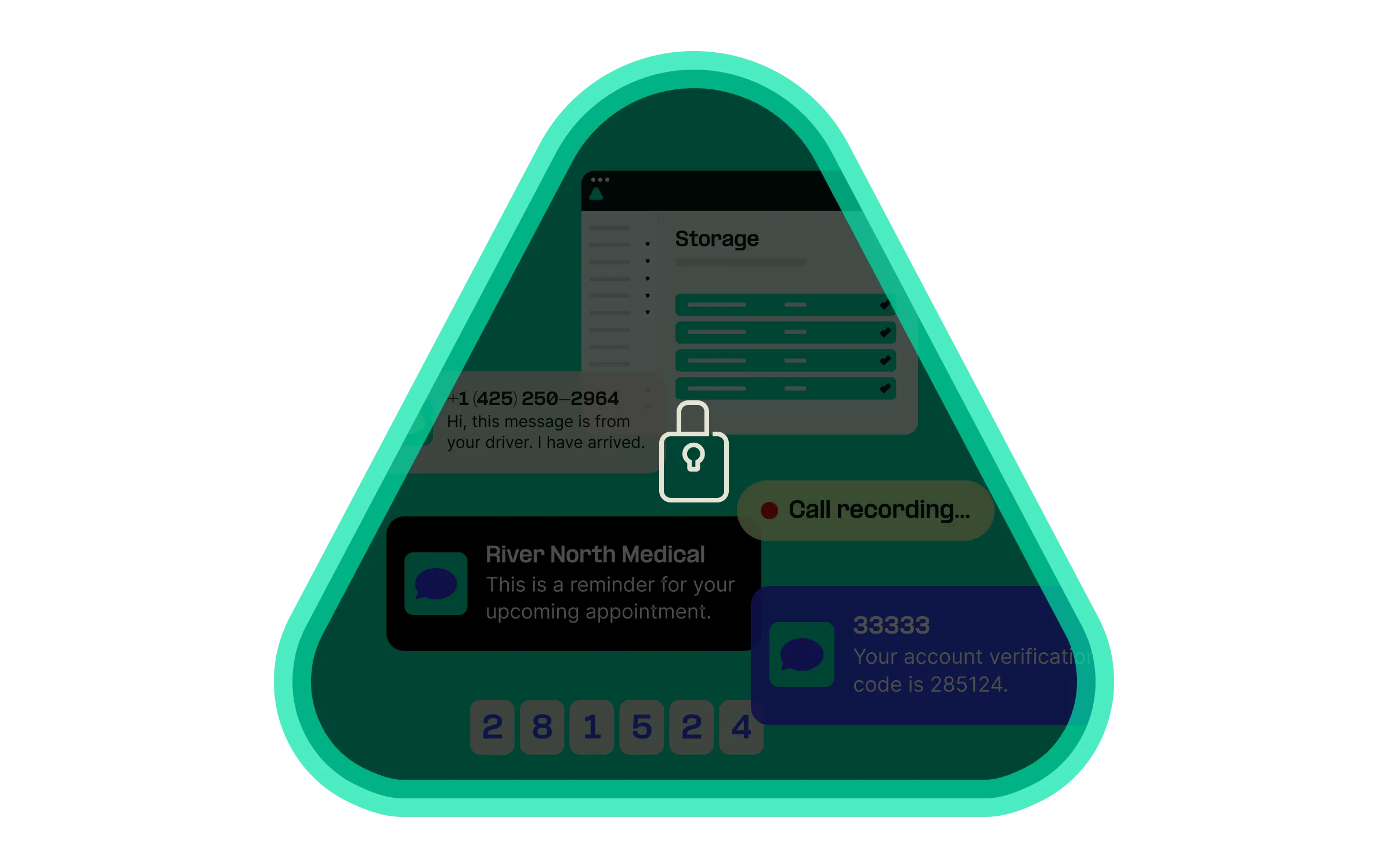Data & privacy
Data & privacy
Your guide to data and privacy at Telnyx.
This page is updated on a regular basis. Last updated effective July 11, 2024.





Prioritizing data protection
Data security and privacy aren't just add-ons at Telnyx. They’re part of our DNA. They’re integral to the way we operate, the solutions we offer, and the trust we build with our customers. At Telnyx, when you entrust your data to us, you’re entrusting it to a company where its protection is at the heart of everything we do.

Adhering to critical legislation
We maintain strict adherence to all international and regional data privacy regulations and standards, including GDPR, CCPA, and other relevant legislations. We have a proactive stance on privacy compliance, working diligently to adapt to the ever-evolving regulatory landscape. This compliance-focused approach underpins the trust our customers place in us, knowing their data is handled in accordance with the highest legal and ethical standards.

Giving you control through transparency
Lastly, we believe our customers should always have control over their data. We’re dedicated to maintaining transparency about our data collection and use practices and empowering our customers to make informed decisions about their data.
Please read our privacy policy to learn more or email us at [email protected] with any questions or concerns regarding data and privacy.
Data locality from Telnyx
With Telnyx Data Locality, you can make a one-time choice of where your Call Detail Records (CDRs) and Message Detail Records (MDRs) are stored at rest in the Telnyx Mission Control Portal. You can find a list of the data types included in our release notes.
Contact us to learn more about enabling data locality for your account.
RESOURCES
How to navigate GDPR regulations
Check out our article on the EU’s GDPR data protection laws.
Data storage location
Learn how to log into the Mission Control Portal to make a one-time choice of where you want your Call Detail Records (CDRs) and Message Detail Records (MDRs) at-rest to be stored.